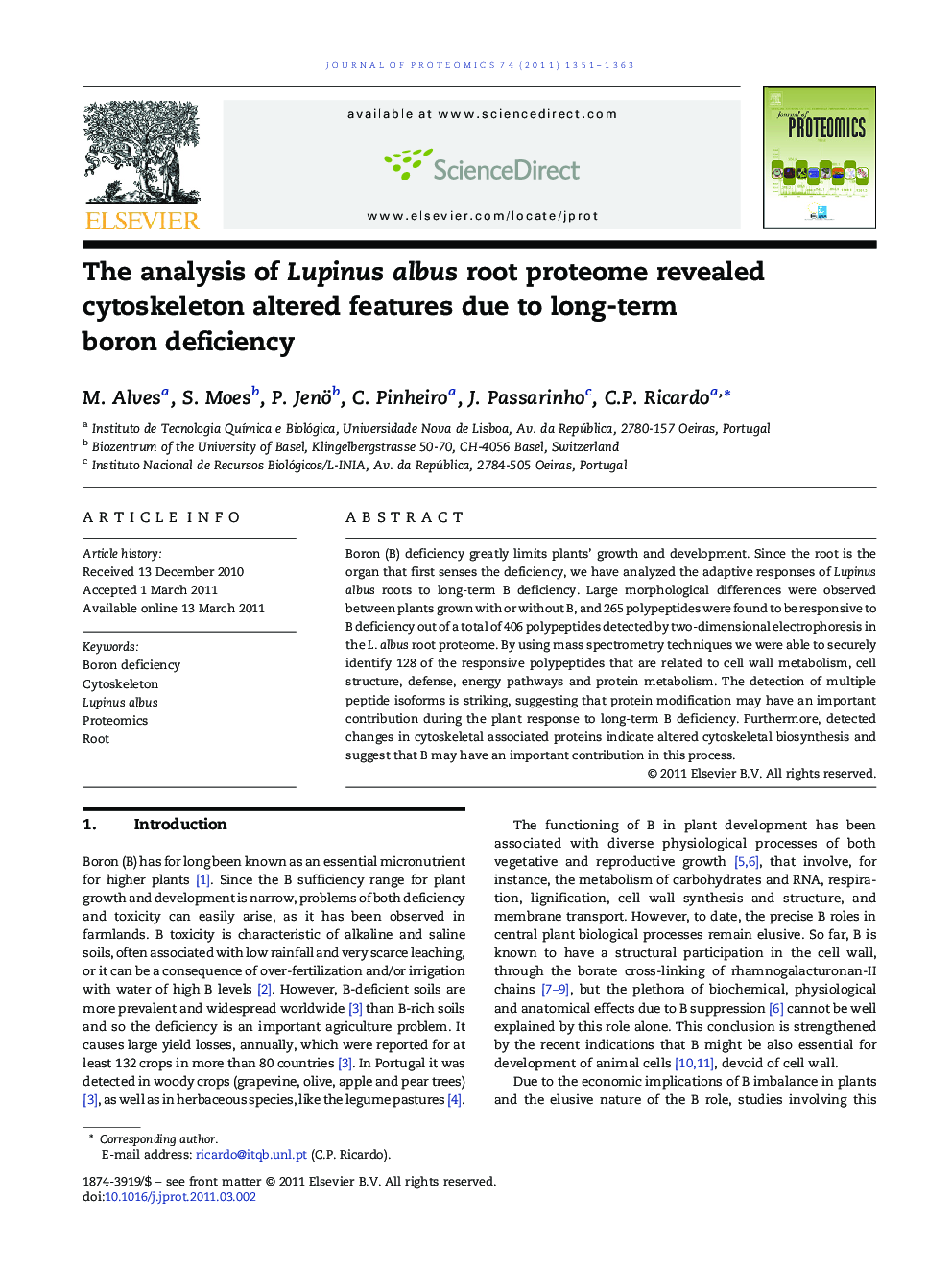| Article ID | Journal | Published Year | Pages | File Type |
|---|---|---|---|---|
| 1225803 | Journal of Proteomics | 2011 | 13 Pages |
Boron (B) deficiency greatly limits plants' growth and development. Since the root is the organ that first senses the deficiency, we have analyzed the adaptive responses of Lupinus albus roots to long-term B deficiency. Large morphological differences were observed between plants grown with or without B, and 265 polypeptides were found to be responsive to B deficiency out of a total of 406 polypeptides detected by two-dimensional electrophoresis in the L. albus root proteome. By using mass spectrometry techniques we were able to securely identify 128 of the responsive polypeptides that are related to cell wall metabolism, cell structure, defense, energy pathways and protein metabolism. The detection of multiple peptide isoforms is striking, suggesting that protein modification may have an important contribution during the plant response to long-term B deficiency. Furthermore, detected changes in cytoskeletal associated proteins indicate altered cytoskeletal biosynthesis and suggest that B may have an important contribution in this process.
Graphical AbstractFrom 406 lupine root polypeptides detected, 265 responded to B deficiency. Of these, 128 were identified and found to be related with cell structure, defense, energy, cell wall and protein metabolism. Furthermore the importance of peptide isoforms and altered cytoskeleton features in the B deficiency response was revealed.Figure optionsDownload full-size imageDownload high-quality image (103 K)Download as PowerPoint slide
